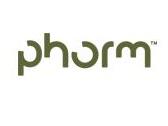EXCLUSIVE: Phorm boss defends targeted ads
Claims Phorm is much more secure than people think

The leading executive of the company behind controversial targeted-ads technology, Phorm, has defended the software from accusations that it’s an intrusion of an individual’s online privacy. He claims instead that it’s leading the way for online privacy and helping deliver a more cost-effective internet experience for both users and advertisers.
In an exclusive interview with TechRadar, Phorm CEO Kent Ertugrul said that while a “small minority” of users were still concerned with privacy issues, Phorm is actually way ahead of the competition when it comes to the security and anonymity of collected data.
"The other major online ad companies store your personal information for at least 13 months before they even anonymise it," he said.
Anonymous data mining
Explaining Phorm’s stance on privacy, Mr Ertugrul claimed that data collection was completely anonymous: "We do not store IP addresses and do not store browsing histories. In fact we don’t know who a user is or where they have been," he said.
Mr Ertugrul also dismissed the idea that the ‘profiling’ of an internet user was tantamount to ‘spying’ on them, regardless of whether their data was being collected anonymously.
"We will not be profiling users – we are not attempting to build a picture about a particular user by storing data on them and their activities online. We don’t know who the users are – all we have is a random number," he said.
Get daily insight, inspiration and deals in your inbox
Sign up for breaking news, reviews, opinion, top tech deals, and more.
No sensitive info
Mr Ertugrul also insisted that Phorm technology was not designed to collect any data on "sensitive topics", including "adult content" and "medical conditions". In addition personal details such as phone numbers or postcodes would also be ignored:
"The system is designed to ignore any data that might be personal such as names or long numbers which might be telephone numbers or postcodes," he said.
To read the full interview click right here.